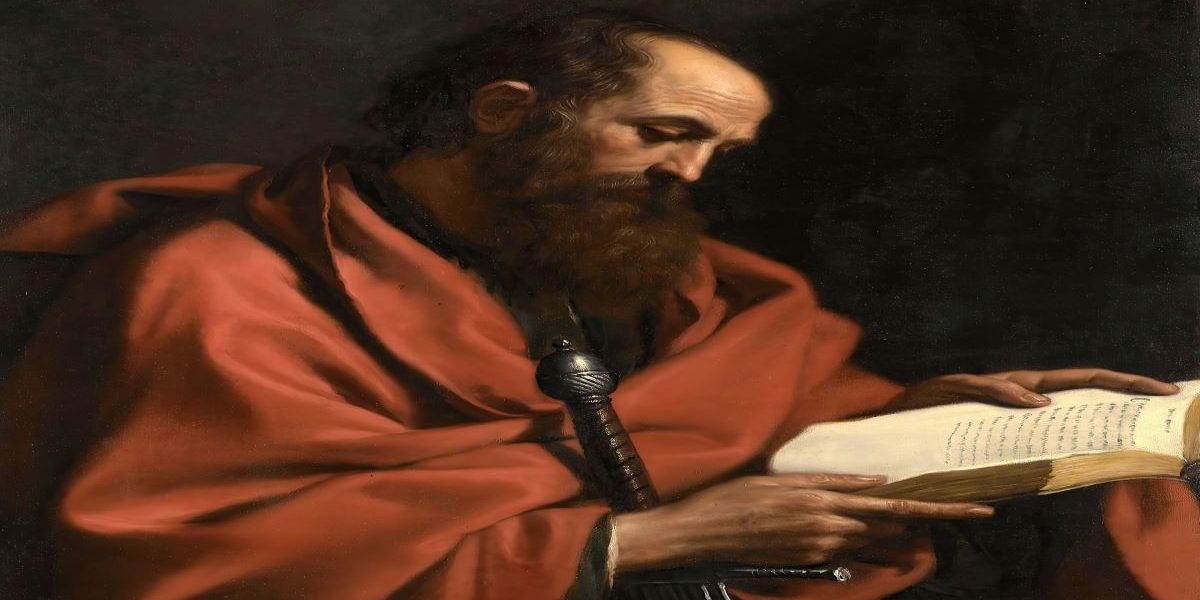The city Philippi was located on the famous Egnatian Road in the Province of Macedonia within the Roman Empire.[1] Neapolis was the adjacent port city of Philippi.[2] The city was named for King Philip of Macedonia. In BC 356, Alexander the Great’s father, Philip II of Macedonia, captured the city Krenides and rebuilt the city, calling it Philippi.[3] Gold mines in the area helped pay for Philip’s army.[4] In BC 168, the Romans conquered and assimilated Macedonia within the Roman Empire.[5]
In AD 42, Octavian (later known as Augustus Caesar) and Antony defeated Brutus and Cassius (the leading assassins of Julius Caesar) on the plains just outside of Philippi.[6] In honor of their victory, Philippi became a Roman Colony. Most significantly, many veteran Roman soldiers settled in Philippi.[7] The city had a reputation as a bastion of Roman patriotism.[8] The citizens of Philippi did not have to pay Roman taxes.[9] The city strongly supported various pagan gods and shrines.[10]
On his Second Missionary journey, Paul received a vision and direction from the Holy Spirit to depart from Asia Minor and travel to Macedonia (Acts 16:6-16). Paul, Silas, Timothy, and Luke set sail from Troas and arrived the next day in Neapolis (Acts 16:11-12). Thereafter, Paul and his companions traveled to Philippi (Acts 16:11-12). They arrived in Philippi around AD 50.[11] Of particular note, there was no synagogue in Philippi (Acts 16:13). Instead, Paul and his companions found a small congregation of Jews and godfearers meeting by the Gangites River (or alternatively, a branch of the Krenides River).[12]
On his missionary journeys around the Roman Empire, Paul often encountered godfearers, who were Gentile believers who attended synagogues. In those days, it was common for Gentile seekers of God to associate with Jewish places of worship. Paul sought out such places of worship to spread the Gospel of Jesus Christ and the Kingdom of God. Because of Philippi’s status as a Roman Colony, the Jewish and godfearing worshippers were required or allowed to meet just outside the city limits.
Of particular note, the text mentions women (not men) meeting in prayer (Acts 16:13). In order to have an official synagogue, there must be ten men.[13] The clear implication is that initially there were not many believers in Philippi. The most prominent person of faith was apparently a woman named Lydia (Acts 16:14). Scripture implies that she was a wealthy businesswoman who sold purple fabrics. She was originally from Thyatira, a city in Asia Minor, famous for the manufacture of purple cloth. She and her household were the first to open their hearts and home to Paul (Acts 16:14-15).
As evidence of the heavy pagan influence in Philippi, Paul and his companions encountered a slave woman possessed by a demonic spirit (Acts 16:16). There were certain men (her owners) who profited from her fortune-telling (Acts 16: 16). She kept following Paul and his companions saying, “These men are bond-servants of the Most High God, who are proclaiming to you a way of salvation” (Acts: 16:17). She did this for many days, and Paul became annoyed. In reaction, Paul exorcised the demon from the woman, and she lost her capacity for clairvoyance. Then her owners became very angry because she was no longer capable of earning money for her owners. They dragged Paul and Silas before the local authorities. They charged, “These men, Jews as they are, are causing our city trouble, and they are proclaiming customs that are not lawful for us to accept or practice, since we are Romans” (Acts 16:21). The chief magistrate ordered Paul and Silas to be beaten and thrown into jail (Acts 16:22-24). They were placed in an inner room, and their feet were fastened with stocks (Acts 16:24). Around midnight, as they were singing hymns to God, a great earthquake occurred (Acts 16:26). The foundations of the prison were shaken, the doors were opened, and their chains were loosened (Acts 16:26). Thinking that the prisoners had escaped, the jailer prepared to commit suicide, but Paul stopped the jailer from killing himself. So appreciative and overwhelmed with thanksgiving, the jailer asked Paul, “Sirs, what must I do to be saved?” (Acts 16:30). Paul and Silas said, “Believe in the Lord Jesus, and you will be saved, you and your household” (Acts 16:31).
Filled with such thanksgiving, the jailer took Paul and Silas to his home and provided them food and care for their wounds (Acts 16:31-34). All of the jailer’s family believed and were baptized (Acts 16:33). On the following day, the local authorities released Paul and Silas from custody (Acts 16:36). However, Paul confronted the authorities for the unlawful beating and imprisonment of Roman citizens without due process (Acts 16:37). Upon hearing that Paul and Silas were Roman citizens, the local authorities became very worried and fearful because of the unlawful beating and imprisonment. The local authorities came and met with Paul and Silas, and they politely encouraged them to leave the city (Acts 16:38-39).
In his missionary journeys, Paul commonly experienced two types and sources of persecution. On the one hand, Paul faced persecution from the Advocates of the Old Covenant (primarily Jews), who believed that Paul was a danger to Judaism. On the other hand, Paul faced persecution from paganism, as occurred in Philippi. However, ultimately, Paul found some of his greatest and most reliable support from believers in Philippi. The Philippine congregation grew in number, and it also had many wealthy benefactors. Again and again, Paul was faithfully supported by the Philippian believers while on his missionary journeys (Phil. 4:16; 2 Cor. 11:9).
[1] “Philippi.” The International Standard Bible Encyclopedia, Vol Three, K-P, Gen. Editor Geoffrey W. Bromiley, et al., William B. Eerdmans Publishing Company, 1988, pp 834-835.
[2] Ibid.
[3] Ibid.
[4] Ibid.
[5] Ibid.
[6] Ibid.
[7] Ibid.
[8] Ibid.
[9] Ibid.
[10] Ibid.
[11] “Philippians, Epistle to the.” The Anchor Bible Dictionary: Volume 5, O-Sh. Editor-in-Chief, David Noel Freeman, et al., Doubleday, 1992, pg. 318.
[12] “Philippi.”
[13] “Philippi.”



